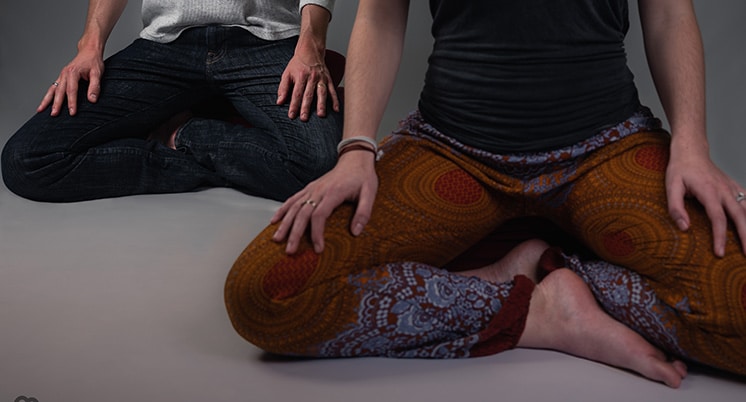Mindful Education — The Future of Meditation in Schools
Category: Meditation for Students and Families

Mindfulness in Education: What’s Behind the Trend?
If you aren’t old enough to remember life before internet and smartphones, chances are your parents or grandparents are. Yes, Virginia, there was a time when young people learned to write in flowing cursive script with pens—even fountain pens—and read books printed on paper. Kids spent time playing and exploring instead of always competing. Information was found in libraries, and learning how to navigate libraries was a thing.
The slower, more deliberate pace helped students learn how to focus and use their powers of investigation in creative ways. In most modern schools, today’s students have access to resources that yesterday’s kids could scarcely have imagined. At the same time, what was once a stream of information has become an overwhelming torrent, adding to the stress of increased competitiveness and academic expectations.
Can meditation help students benefit?
Can meditation help students benefit from the additional resources without being overwhelmed by present-day challenges in education? England thinks it can. The country has launched a mindfulness pilot program in approximately 370 schools nationwide. The study focuses on the social and emotional impact of providing students with access to mindfulness exercises, starting in primary school. It’s one of the largest studies of the kind to date. The goal: measure the degree to which meditation can help kids learn to regulate emotions and adapt to change without piling on the stress.
And in India, Delhi schools have introduced 45-minute “Happiness Classes” that include meditation and discussion. As described by one student in an article in India Today, “We meditate and focus on sounds — like our heartbeat and sounds in nature. The period begins with a few minutes of mindfulness practice, followed by a story or activity and reflective discussions.”
The decision to implement mindfulness education in the classroom isn’t just a fad. It’s supported by a good deal of research carried out in a broad variety of venues to students from all horizons, from inner-city public schools to classes of students with learning disabilities to high-pressure prep schools to at-risk adolescent populations. The general consensus is that meditation isn’t a panacea, but it does help students focus and deal more effectively with difficult emotions.
“One in five American children struggles with anxiety, according to the National Institute of Mental Health, and almost half experience at least one serious stressor at home—like divorce, poverty or a parent’s addiction—according to the nonprofit Child Trends,” NPR recently reported.
Science teacher and mindfulness advocate Wendelin Wagner works with middle and high school students in classrooms and home-school settings. “A question I always ask high school students during mindfulness studies is, ‘What recurrent mental states are you prone to?’” she says. “I invite them to think about the past month and list adjectives that describe their dominant emotions. Almost invariably, the words ‘stressed’ or ‘anxious’ appear in their lists.
“Schools are the perfect place to introduce methods for working with the challenges of everyday student life,” Wagner continues. “If young adults are given the tools for self-reflection and inner-assessment—as well as moments in the day dedicated to checking in–they can better manage the precursors that lead to overwhelm. Through becoming more aware of, and then befriending, their tendencies, I have seen students turn a perceived negative such as the inability to focus or ‘the jitters’ into a positive label such as ‘extrasensory alertness.’ These small shifts in self-perception can lead to greater emotional stability and resilience while steaming in the social pressure-cooker that is secondary school.”
Students aren’t the only ones who experience stress and anxiety in schools. Many of the challenges educators face are similar to those of their students: ever-evolving technologies, a lack of “down time,” limited resources, pressure to adhere to norms that don’t necessarily fit the students’ personal strengths, and so on. That’s why most professionals in the mindful education world emphasize the importance of including teachers and other personnel in the “mindful mindset.” A good teacher walks the talk, and a regular mindfulness practice helps teachers become aware of their own patterns, implicit biases and unhelpful reactions, as well as their strengths.
Many university education curricula now include a mindfulness for teachers training course. The Harvard Graduate School of Education, for example, began offering a Mindfulness for Educators course a few years ago. According to their website, “Mindfulness for Educators introduces a set of concepts and practices that foster greater focus, acceptance, and self-compassion to help educators deal with the multiple demands and challenges they face.”
Bottom line? There’s plenty of evidence that mindfulness meditation can enhance the scholastic experiences of both students and staff. And since it starts with the grown-ups, those interested in mindful education should learn the basics of meditation and experience the benefits of a regular practice for themselves.






